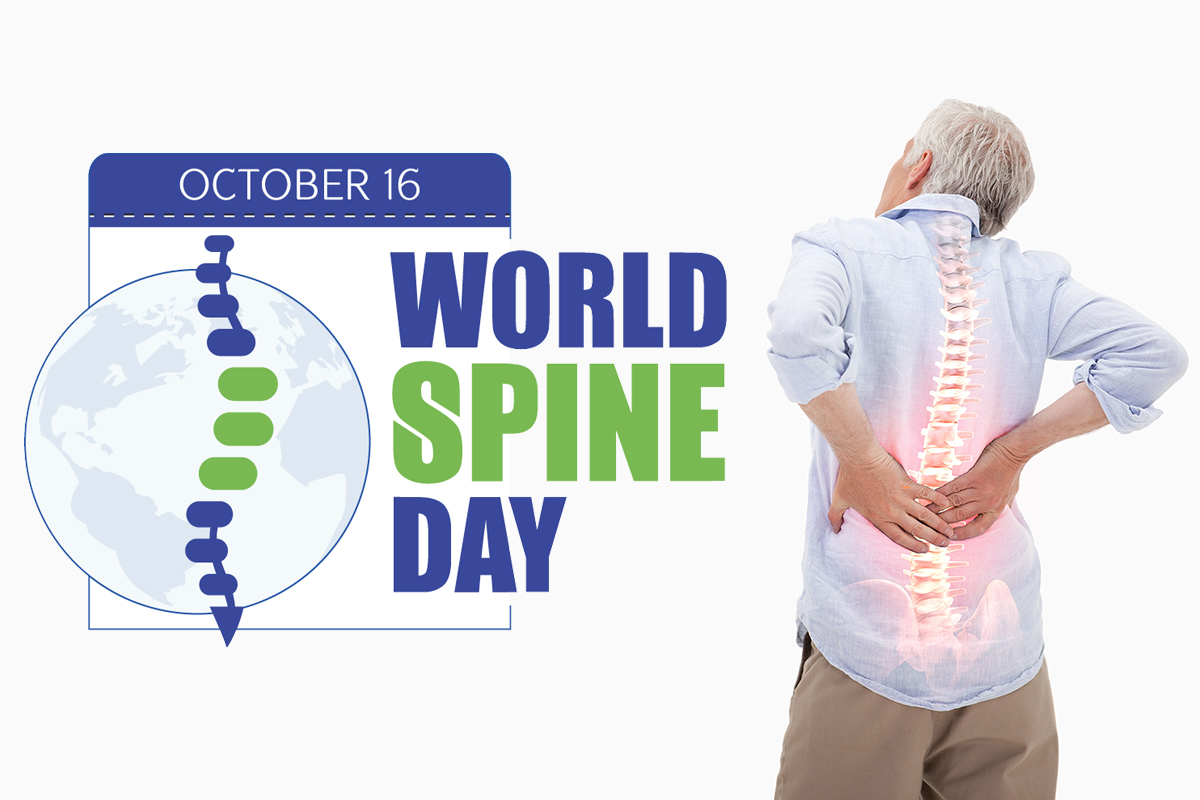In the pursuit of holistic well-being, one often overlooks the crucial role played by the spine—the literal backbone of our body. World Spine Day, celebrated globally, sheds light on the significance of spinal health. In India, where traditional practices and modern lifestyles coexist, this day takes on special relevance. Let’s explore the importance of World Spine Day, the state of spinal health in India, and the initiatives undertaken to promote a healthy spine.
Understanding World Spine Day: World Spine Day, observed on October 16th every year, aims to raise awareness about spinal disorders and encourage people to take proactive measures for spinal health. The spine, a complex structure of bones, nerves, and tissues, plays a pivotal role in supporting the body, protecting the spinal cord, and facilitating movement. The day serves as a global platform to address issues related to spinal health, promote preventive measures, and advocate for early intervention.
The State of Spinal Health in India: India, with its diverse population and cultural practices, presents a unique landscape for spinal health. While traditional practices like yoga often emphasize the importance of spine-friendly activities, modern lifestyles pose challenges. Sedentary habits, poor posture, and a lack of awareness contribute to an increasing prevalence of spinal issues.
1. Prevalence of Spinal Disorders: Spinal disorders, encompassing conditions like back pain, herniated discs, and spinal deformities, are becoming increasingly common in India. A sedentary lifestyle, coupled with a lack of ergonomically designed workspaces, contributes to the rise in these issues, affecting people across age groups.
2. Impact of Technology: The rise of technology has brought convenience but also altered our daily habits. Prolonged hours spent on smartphones and computers contribute to poor posture, leading to strain on the spine. The younger generation, in particular, is vulnerable to these issues.
3. Role of Traditional Practices: India boasts a rich heritage of traditional practices that prioritize holistic well-being. Yoga, an ancient discipline, emphasizes spinal flexibility and strength. Integrating these practices into modern lifestyles can potentially mitigate spinal problems.
Initiatives for Spinal Health in India: Recognizing the importance of spinal health, several initiatives and campaigns have been launched in India to address the challenges and promote awareness.
1. Educational Campaigns: Healthcare organizations and NGOs conduct educational campaigns to spread information about maintaining a healthy spine. These campaigns often include tips on posture, exercises for spinal strength, and the importance of regular check-ups.
2. Corporate Wellness Programs: With a significant portion of the population engaged in desk jobs, corporate wellness programs have gained prominence. These programs focus on creating spine-friendly work environments, conducting ergonomic assessments, and encouraging employees to incorporate spine-friendly practices.
3. Integration of Yoga in Education: Recognizing the holistic benefits of yoga, some educational institutions have integrated yoga into their curriculum. Yoga sessions aim to instil healthy habits early on, promoting spinal health among students.
4. Medical Camps and Check-ups: Free medical camps and check-up events are organized in various regions to provide access to spinal health assessments. These initiatives aim to identify spinal issues at an early stage, allowing for timely intervention.
5. Public Seminars and Workshops: Spine specialists often conduct public seminars and workshops to share insights on maintaining spinal health. These events provide a platform for individuals to learn about preventive measures and seek guidance from experts.
As we approach World Spine Day in India, it's essential to recognize the critical role that spinal health plays in our overall well-being. By spreading awareness, incorporating spine-friendly practices into our daily lives, and leveraging the wisdom of traditional practices, we can collectively strive towards a healthier spine. The initiatives undertaken across the country underscore the commitment to addressing the challenges posed by modern lifestyles and promoting a culture of spinal well-being

 By spreading awareness, incorporating spine-friendly practices into our daily lives, and leveraging the wisdom of traditional practices, we can collectively strive towards a healthier spine.
By spreading awareness, incorporating spine-friendly practices into our daily lives, and leveraging the wisdom of traditional practices, we can collectively strive towards a healthier spine.










.jpeg)


.jpeg)
.jpeg)
.jpeg)
_(1).jpeg)

_(1)_(1)_(1).jpeg)
.jpeg)
.jpeg)
.jpeg)








.jpeg)
.jpeg)